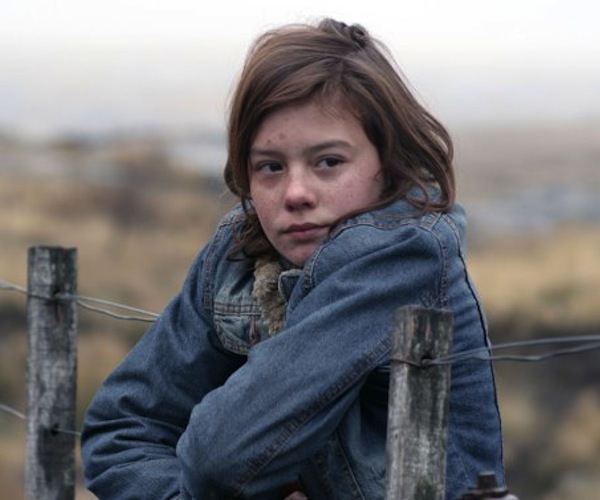Fuse Film Review: “Natural Sciences” — A Journey into the Argentinian Lower Depths
Written and directed by feature film newcomer Matais Lucchesi, Natural Sciences is a cautionary tale: be careful what you wish for.
Natural Sciences, screening at Museum of Fine Arts Boston’s New Latin American Cinema, Boston, MA, on March 11, 15, and 18.

Lila (Paula Hertzog) dreaming of freedom in “Natural Sciences.”
By Paul Dervis
The MFA continues its impressive New Latin American Cinema series with the rustic Argentinian offering Natural Sciences. Written and directed by feature film newcomer Matais Lucchesi, this is a cautionary tale: be careful what you wish for.
Set in a low end boarding school filled with seemingly abandoned children in the desolate countywide, we meet Lila, a disturbed twelve year old entering puberty with many questions and few answers. Who is her father? Where does she come from? What the heck is she doing here?
Lila has had enough. She decides to run away and look for the answers. First, she takes one of the school’s horses and attempts to flee on a cold winter’s day. But she isn’t dressed to venture into the arctic temperatures. Fortunately, she is stopped before she freezes to death.
Next, she attempts to steal the one beat up old car on campus. Not knowing how to drive, she destroys the lean-to where the vehicle is stored. The principal has seen enough of these pathetic escape attempts and decides to send Lila back home to her stressed-out mother. The one teacher who is sympathetic to Lila’s pain is sent to drive her back.
And that is where the journey begins.
The teacher, played with a mix of compassion and weariness by Paola Barrientos, decides to help Lila find her wayward father. Against her better judgement, the teacher calls the school and falsely claims that the girl is ill. They must make a detour to a hospital, which slows down the trip. But there isn’t much to go on; Lila doesn’t even know the name of her dad. Her only clue to his identity is a nameplate from the antenna-installation company he worked for: the guy put a TV antenna on top of Lila’s mother’s house over a decade ago. The teacher drives a hundred miles to the business’s headquarters but, of course, TV antennas are now obsolete. The company folded years earlier.
Their quest seemingly ended, the pair go back on the road, heading for the girl’s home. However, before they leave the godforsaken hamlet, a local says he knows the whereabouts of the man who installed antennas in Lila’s hometown a number of years ago. He was a rakish fellow who left scores of children in his wake.
And he lives many, many miles away.
The journey continues. They find the man, now aging and infirm, more in need of Lila than the other way around. She feeds him and cares for him. She is at peace. That is, until she drops the name of her mother and finds out that he has never heard of her. The road trip appears to have come to a pathetic halt. That is, until the faux father remembers that the company sent out another man to the mother’s region to make repairs.
And you can guess where the film goes from here.
Made up of countless grainy images, Natural Sciences is nothing if not a bleak journey over dirt roads. Lucchesi has created a starkly depressing world. The only thing these people have are each other…not just the teacher and student, but all the poverty-stricken characters they come in contact with. The film dramatizes the spiritual resilience of a luckless community forged out of necessity. There is something almost Maxim Gorky-ish (The Lower Depths) about this desperate-to-the-max vision of the bottom half of humanity.
The actress playing Lila, Paula Galinelli Hertzog, does not disappoint. The character is at once both jaded and determined. She shows little hope that she will find a better life than the one she’s now living, yet she is hellbent on finding out just why she is where she is in life’s pecking order. Hertzog’s expressions are suitably steely, yet she is able to show flickers of sympathy for those in the alien world around her.
All in all, the actors makes Natural Sciences‘s rickety road trip to nowhere compelling.
Paul Dervis has been teaching drama in Canada at Algonquin College as well as the theatre conservatory Ottawa School of Speech & Drama for the past 15 years. Previously he ran theatre companies in Boston, New York, and Montreal. He has directed over 150 stage productions, receiving two dozen awards for his work. Paul has also directed six films, the most recent being 2011’s The Righteous Tithe.
Tagged: Matais Lucchesi, Museum of Fine Art, Natural Sciences, New Latin American Cinema
